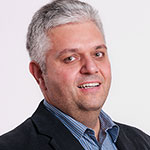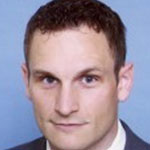"Great material and speakers" and "Great speakers a lot of experience and sharing"
Felipe Gonzalez, Mucos Emulsionsgesellschaft mbH
Live Online Training - Granulation & Tableting, September 2024
"I am so grateful for having attended this course. Great job from all, and very profitable. Thanks!”
Alba Aranda Cuesta, Kern Pharma
KPIs and Quality Metrics, Berlin, Germany, April 2025
"The lectures were very informative, interesting and entertaining."
Albert Godoy Hernández, Company synaffix
Live Online Training - GMP Auditor Practice, October 2024
"Really useful training which I will use in my daily work."
Regina Mommaerts, Galapagos NV
Live Online Training - GMP Auditor Practice, October 2024
"Wonderful format of the sessions: Good range of participations and experience in the team. Would love to attend another one soon."
Roopasi Mathi, Wacker Biotech B.V.
Live Online Training - GMP Auditor Practice, October 2024
"Very good balance between general and detailed information"
Dr Ralf Albrecht, Tillotts Pharma AG
Live Online Training - Granulation & Tableting
September 2024
"Nice presentations: easy understanding, quite visual"
Susana Manrique, Boehringer Ingelheim España, S.A,
Live Online Training - Granulation & Tableting, September 2024
“Fantastic course – I really enjoyed the interactive structure & greatly appreciate social activity.”
Anthony Cummins, Sebela Pharmaceuticals, Ireland
GMP Auditor Practice, September 2023
“Very well organized, information on point without being overwhelming.”
Eleni Kallinikou, Pharmathen
Live Online Trainng - Pharmaceutical Contracts - Febuary 2024
“Good overview of different types of agreements, good to see both the GMP and the legal angle”
Ann Michiels, Johnson&Johnson
Live Online Trainng - Pharmaceutical Contracts, Febuary 2024
“Both, organizers and lecturers were very friendly, open for discussions and extremely constructive. The course was a valuable experience for me.”
Maria Dimitrova, NKN Law Firm
Pharmaceutical Contracts: GMP and Legal Compliance, March 2025








